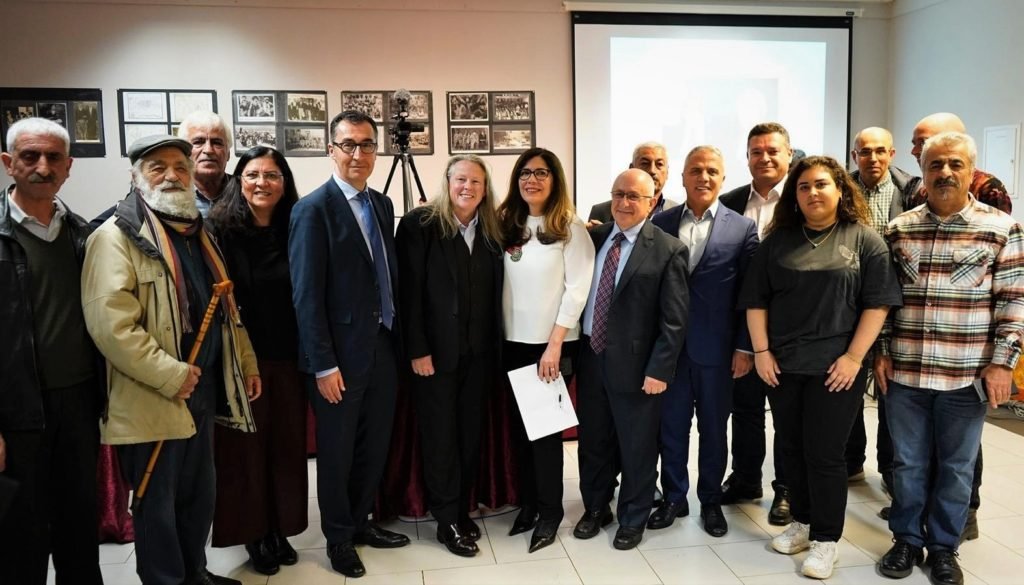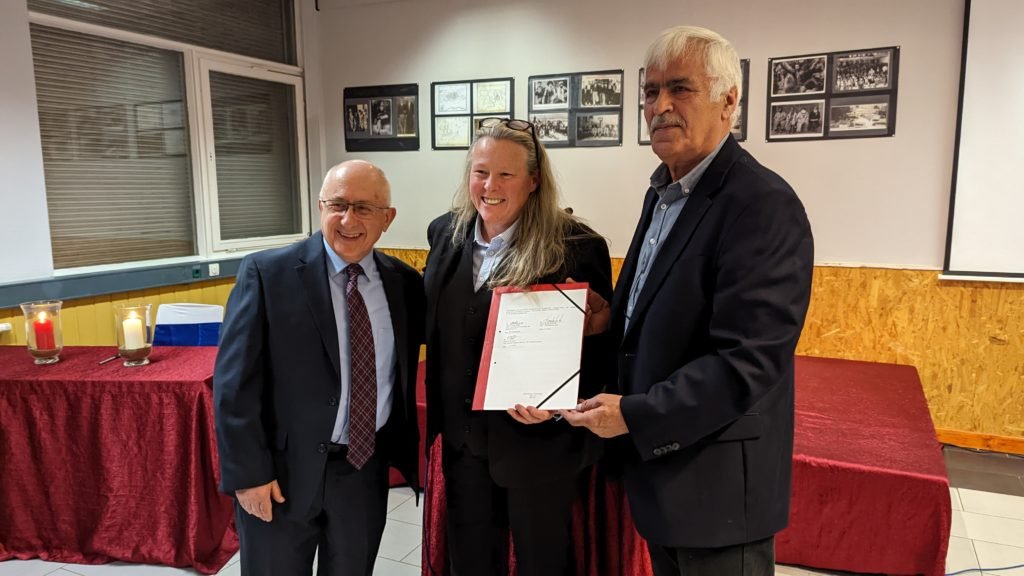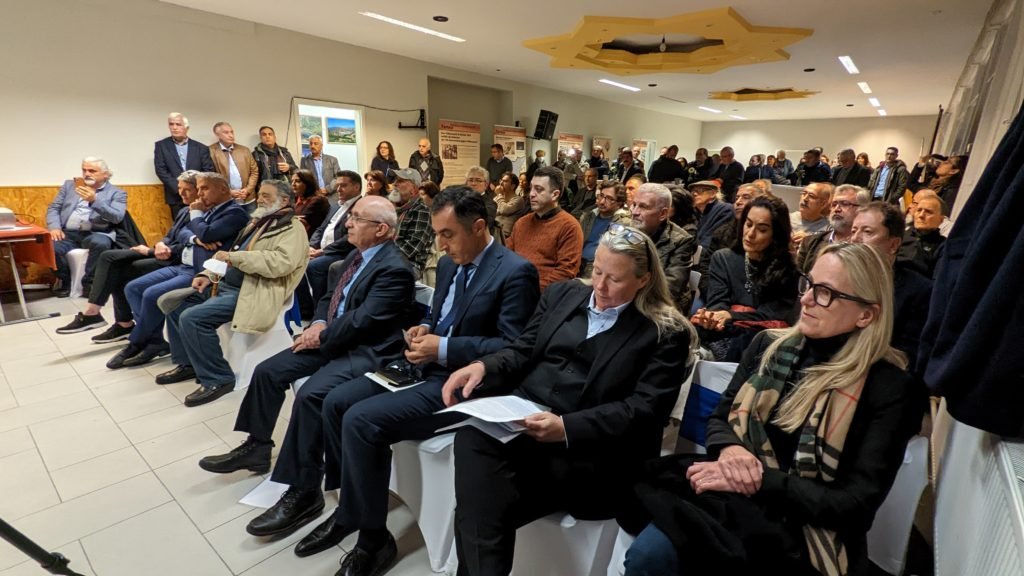
LOS ANGELES, Calif.—The Armenian Genocide Research Program (AGRP) of the Promise Armenian Institute at UCLA, the Federation of Dersim Associations in Europe and USC Shoah Foundation have joined forces to collaborate on the Dersim 1937-1938 Tertele Oral History Project, the first, most comprehensive and longest-running academic oral history project concerning the survivors of the 1937-1938 massacres in the Dersim region of eastern Turkey.
The collaboration was announced on November 17, when the federation formally transferred over 350 interviews to USC Shoah Foundation at a ceremony in Berlin. Prominent guests at the announcement included Cem Özdemir, German federal minister of food and agriculture; Kori Street, deputy executive director of USC Shoah Foundation; Dr. Taner Akçam, director of the AGRP; and several representatives of German political parties.

USC Shoah Foundation’s Visual History Archive is the world’s largest collection of primary source video testimonies from survivors and witnesses of the Holocaust and other genocides, crimes against humanity and related persecution. Recently relaunched with a new interface and suite of innovative improvements, the archive contains 55,000 testimonies from 14 mass crime experiences.
The oral history project, which was launched in Germany in 2009, was facilitated under the academic leadership of Dr. Akçam. It aimed to fill a gap in the global historical timeline surrounding the events in Dersim — where it is estimated that tens of thousands of Dersimi people were massacred and deported for the purpose of Turkish assimilation — by providing a written record of eyewitness accounts, as well as those of their children.
Of note, the Dersimi people protected Armenians during the Armenian Genocide of 1915-18. The Turkish officers who organized the 1937-1938 massacre were not only looking for survivors of the Armenian Genocide, but openly stated that one of the reasons for the operations against the Dersimi people was their decision to safeguard Armenians during the early 20th century.
Moreover, documentation of this dark chapter of history helps contextualize the Turkish state immediately following the Armenian Genocide and its attitudes and policies towards ethnic minorities.
The Dersim project was shaped by the work of two institutions, a committee of dedicated academic advisors and countless volunteers. The federation provided logistical and financial support, while the Strassler Center for Holocaust and Genocide Studies at Clark University created the academic infrastructure. The project’s inaugural board of academic advisors consisted of professors Deborah Dwork (Clark University, USA), Martin Van Bruinessen (Utrecht University, Netherlands) and Hans Lukas Kieser (University of Zurich, Switzerland), as well as USC Shoah Foundation’s Director of Research and Documentation Karen Jungblut.
Between 2010 and 2014, over 350 testimonies were collected. In 2019, at the initiative of the federation, the Dersim 1937-1938 Tertele Oral History Project committee was established. Led by Dr. Akçam, the committee completed a pilot project of 20 interviews, which were translated from Zazaki into Turkish, and then into English.
Simultaneously, agreements were concluded with USC Shoah Foundation to integrate these testimonies into its archive. Beyond the overall aim of preserving the collection of Dersim interviews, the AGRP, federation and USC Shoah Foundation plan to make the pilot project testimonies available for public access.
“The oral history archive we have completed is the best example of how a country and society should protect its past. People, communities and states can prevent new disasters if they remember and institutionalize the suffering of their past. In this sense, the Dersim Oral History Project is a beautiful and promising example,” stated Dr. Akçam.
The Dersim project is a prime example of what can be achieved at the nexus between academia and community.



Be the first to comment